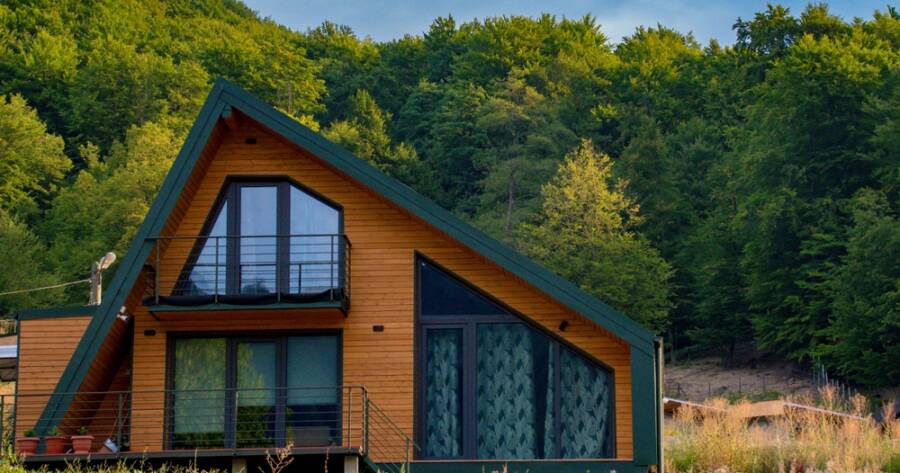Imagine living in a home that’s stylish, sustainable, and tailored to your needs. Eco-friendly modular homes combine innovative design with environmental responsibility, offering a smart solution for modern living. Built with precision, these homes reduce waste and energy consumption while maintaining exceptional comfort and aesthetic appeal. Whether nestled in nature or placed in urban landscapes, these homes redefine what it means to live sustainably without compromising on elegance or functionality.
What Are Modular Homes?
Modular homes are prefabricated structures built off-site in sections, also known as modules, which are then transported to their final location for assembly. This construction method differs from traditional, on-site building practices, offering several key advantages.
Since modular homes are produced in a controlled factory environment, the quality is consistent, and the building process is highly efficient. This efficiency is one reason why modular homes are often much less expensive than traditional houses. Additionally, the modular approach results in less construction waste and reduced environmental impact, contributing to their sustainability.
Affordability Without Compromise
One of the most significant benefits of modular homes is their affordability. Because these homes are built in factories, construction costs are typically substantially lower compared to traditional homes. The controlled environment allows builders to work year-round without worrying about weather delays, and bulk purchasing of materials helps keep costs down. As a result, modular homes often come with a lower price tag, making homeownership more accessible, particularly for first-time buyers or those looking to downsize.
Despite the lower cost, modern modular homes do not compromise on quality or aesthetics. Today’s modular homes are designed with sleek, contemporary layouts that appeal to a wide range of tastes. Buyers can choose from a variety of floor plans and finishes, ensuring that their home suits their needs and preferences. This combination of affordability, modern design, and customizable features makes modular homes a viable option for many individuals and families.
Sustainable Building Practices
Another significant advantage of modern modular homes is their focus on sustainability. The factory construction process is often more sustainable than traditional methods, as it reduces material waste by using precise cutting and assembly techniques. Any leftover materials can often be reused for other modules, reducing the overall environmental footprint of the building process.
Furthermore, some modular homes are built with eco-friendly materials and designed to be energy-efficient. Features such as high-quality insulation, energy-efficient windows, and advanced heating and cooling systems help to minimize energy use. These homes are often designed with a smaller physical footprint, which means less land is disturbed, promoting responsible land use. Homeowners can also opt for additional sustainable features, such as solar panels, rainwater harvesting systems, or greywater recycling, to further minimize their environmental impact.
Benefits of Inexpensive Modern Modular Homes
Quick Construction Time
Modular homes can be constructed in a fraction of the time it takes to build a traditional home. Since much of the work is completed in a factory, site preparation and module assembly can occur simultaneously. This parallel approach significantly reduces the overall construction timeline, which means homeowners can move in sooner and start enjoying their space.
High Quality and Durability
Modular homes are subject to strict quality control procedures throughout the construction process. The controlled environment minimizes the risk of damage from weather and reduces the likelihood of errors during assembly. This results in a home that is built to last, often exceeding the quality standards of traditional homes.
Flexibility and Customization
Modular homes offer a level of flexibility that is difficult to achieve with traditional homes. Because they are built in sections, adding extra modules or making adjustments to the layout is relatively simple. This modular nature means that homeowners can expand their living space as their needs change, without having to start from scratch. Customization options also allow homeowners to create a space that reflects their personal style while sticking to their budget.
Reduced Waste and Efficient Use of Resources
Since modular homes are built in a factory, builders can better manage resources, leading to less waste overall. The efficiency of the production process means that fewer materials are required, and what is used is utilized to its full potential. This reduction in waste is a crucial aspect of the sustainability of modular homes, helping to promote responsible resource consumption in the building industry.
A Modern Solution for Sustainable Living
Inexpensive modern modular homes represent a forward-thinking approach to homeownership that is both affordable and environmentally responsible. With quick construction times, customizable options, and a focus on sustainability, these homes are ideal for anyone looking to reduce their environmental footprint without sacrificing comfort or style.
By embracing modular construction, homeowners can enjoy a high-quality living space that meets their needs today while contributing to a more sustainable future. Whether you’re a first-time buyer, downsizer, or just someone who wants to live more sustainably, modern modular homes offer an accessible pathway to a greener lifestyle.

